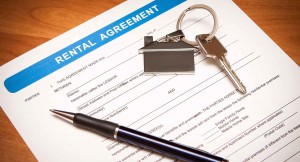[ad_1]
The most successful property investors have a number of tools in their landlord kit-bags.

That’s because, to create significant wealth, investors not only need to be strategic with their property purchases, they also need to hold for the long-term.
This involves not making silly mistakes that could have easily been avoided with the right guidance and education.
Here are 15 common mistakes that can ruin an investor’s wealth creation plan.
1. Not considering vacancy rates
Ignoring vacancy rates is always a bad idea, whether you are buying or already owning a property in a particular location.
High vacancy rates mean there is too much supply, which will drag down rents as well as yields – sometimes for years.
2. Not understanding demographics
One of the fundamentals that investors must understand before buying in a specific area is the demographics of the tenants (as well as the owner-occupiers) in the area.
These means don’t buy a one-bedroom unit in a suburb that is popular with families who want to rent three-bedroom houses.
3. Not budgeting for maintenance
You must always treat your investment properties and your tenants with respect.
That means always budgeting for maintenance because your investment is actually someone’s home.
4. Not listening to expert advice 
Investors who engage property managers for their portfolios understand the importance of working with professionals.
However, when some investors choose to ignore that same expert’s advice, you have to wonder why they bothered at all?
Remember…if you’re the smartest person in your team, you’re in trouble.
5. Not knowing the market rent
Whether your investment property is currently tenanted or vacant, not knowing the market rent will likely cause you cash flow problems in the long run.
That’s because advertising it for a sky-high rent will see it sit empty and trying to increase the rent when the market is soft may motivate your tenants to move somewhere more affordable.
6. Not having fixed-term leases

Having a tenancy agreement in place guarantees your income for the next six or 12 months, while periodic leases mean the tenants can shift out with very little notice.
A good property manager will also ensure that your lease doesn’t expire at a time when it’s difficult to relet your property.
For example, at Metropole Property Management we will often get tenants to sign a 13-month lease so their lease doesn’t expire over the Christmas holiday period.
7. Not using property managers
Worse than not listening to the advice or property managers is not using them at all.
Novice landlords think they are saving money by managing their property themselves.
In reality, it is likely to cost them far more in the long run because of their inexperience.
8. Not keeping your distance from tenants

Of course, you should always treat tenants with respect, but it’s vital that the relationship is professional.
At the end of the day, it should be a business relationship – with a property manager the intermediary.
9. Not having insurance
Similar to thinking that property management is not worth the expense, some landlords believe that insurance is not needed either.
Savvy investors, on the other hand, always have landlord insurance as well as the relevant building insurances to ensure their asset is always protected from damage.
10. Not treating property investment as a business

The most successful investors remain engaged, including regularly their portfolios and their property manager’s performance.
They do this because they treat it as a business not a hobby that “hopefully” will make some money someday.
11. Not having a depreciation schedule
Some landlords incorrectly believe that depreciation is only claimable on the new property.
The truth of the matter most properties will likely have some depreciable items, which can be claimed at tax time.
Having a depreciation schedule prepared for each of your investment properties can save thousands of dollars in tax each year – regardless of the age of the property.
12. Not having interest-only loans

Unfortunately, some landlords still adopt this mentality and have principal and interest loans on their properties.
As it’s only the interest component that is tax-deductible, the best strategy is usually to have interest-only loans on investment properties.
This allows any extra cash flow to be used to grow your portfolio as well as maximise tax deductions.
13. Not using an accountant who understands property
Compared to two decades ago, property investment today is a profession in its own right.
These days, there are buyer’s agents and qualified property investment advisers but there are also specialist accountants and mortgage brokers.
Smart investors always work with property investment experts to help them achieve their financial and wealth creation goals.
14. Not increasing the rent regularly
The Holy Grail of property investing is long-term tenants who treat the property as their home.

The best strategy is to make incremental, but reasonable increases, to the rent during the course of a long lease.
That way the tenant is happy and so is your cash flow.
15. Not holding for the long term
A combination of some of these mistakes will often result in investors having to offload their properties early.
Unfortunately, that usually happens at the worst possible time in the market and they have to sell for a loss.

That way, they are able to grow their portfolios as well as hold them for the lengthy period of time it takes for true wealth to be created.
Clearly, there are a number of different elements that create a successful property investment story.
Of course, selecting a property that has a proven history of outperforming the averages as well as the potential for future capital growth is one of the most important.
However, so is recognizing the value of professional property management… and avoiding common landlord mistakes that can easily derail your plans.
ALSO READ: 20 Australian suburbs where rent prices are set to soar
Leanne is National Director of Property Management at Metropole and a Property Professional in every sense of the word. With 20 years’ experience in real estate, Leanne brings a wealth of knowledge and experience to maximise returns and minimise stress for their clients. Visit: Metropole Property Management
[ad_2]
Source link

